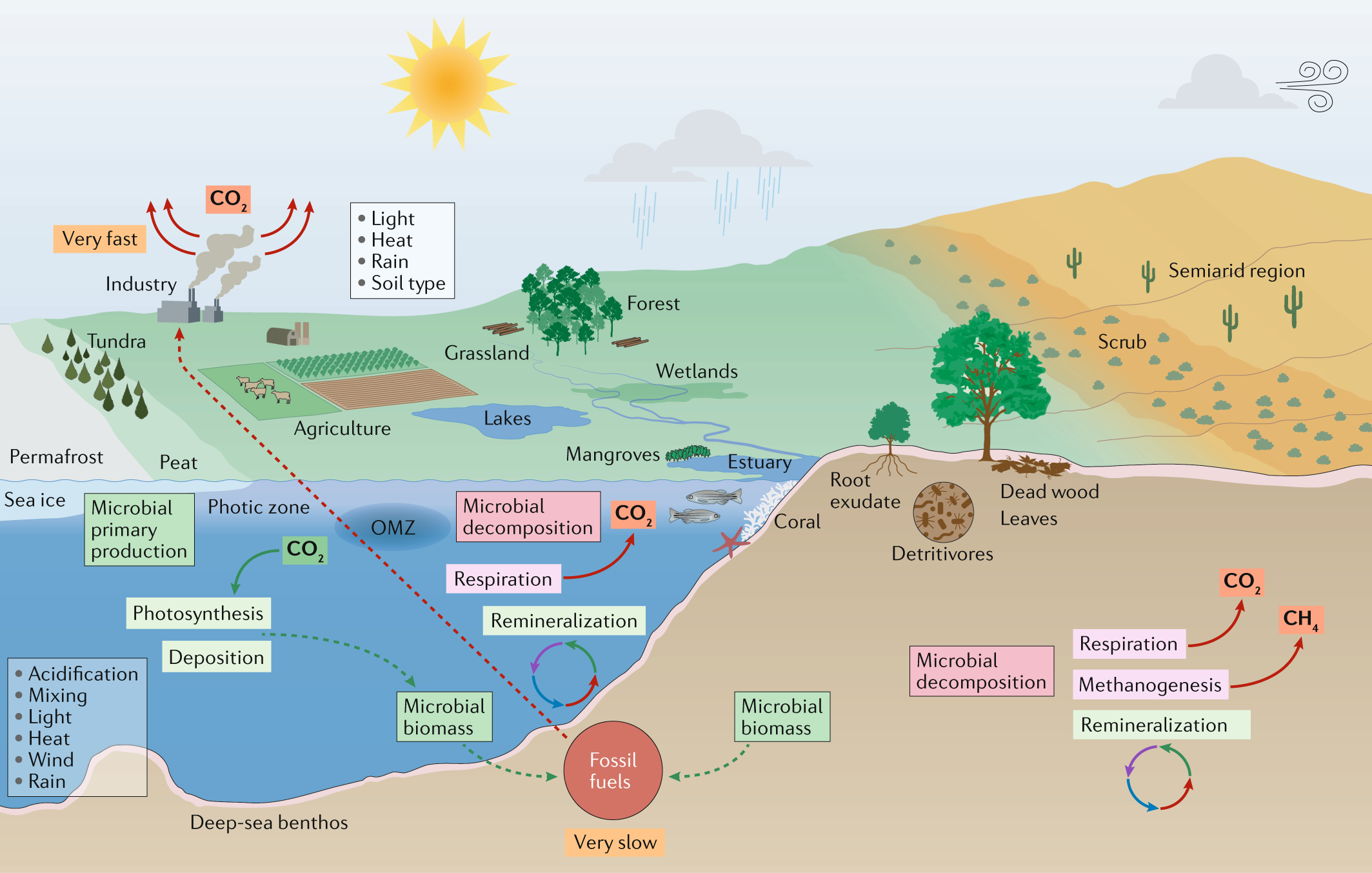preahvihearhotel.com – Microorganisms, including bacteria, archaea, viruses, fungi, and protozoa, are the unsung heroes of Earth’s ecosystems. Despite their small size, they play disproportionately large roles in the functioning of ecosystems, influencing everything from nutrient cycles to climate regulation. Their activities are fundamental to the health and sustainability of the planet.
Driving Nutrient Cycles
One of the most critical roles of microorganisms is their involvement in nutrient cycling. They are key players in the carbon, nitrogen, and phosphorus cycles, which are essential for life on Earth.
Carbon Cycle
Microorganisms are central to the carbon cycle, which is crucial for regulating atmospheric CO2 levels. Photosynthetic microorganisms, such as cyanobacteria, convert CO2 into organic matter, while heterotrophic microorganisms decompose organic matter, releasing CO2 back into the atmosphere. This process is vital for maintaining the balance of CO2, which is a greenhouse gas.
Nitrogen Cycle
The nitrogen cycle is another area where microorganisms play a pivotal role. Nitrogen is a key component of proteins, nucleic acids, and other essential biomolecules. Microorganisms like rhizobia and cyanobacteria fix atmospheric nitrogen into a form usable by plants. Other microbes convert ammonia to nitrate (nitrification) and nitrate back to nitrogen gas (denitrification), completing the cycle.
Phosphorus Cycle
Microorganisms also participate in the phosphorus cycle, which is essential for the formation of nucleic acids and phospholipids. They help in the solubilization of phosphorus from rocks and organic matter, making it available to plants.
Decomposition and Recycling
Decomposition is a fundamental ecological process that recycles nutrients from dead organisms back into the ecosystem. Microorganisms, particularly bacteria and fungi, are the primary decomposers. They break down complex organic matter into simpler inorganic compounds, which can be reused by plants and other organisms. This recycling is crucial for the sustainability of ecosystems.
Bioremediation
Microorganisms are also used in bioremediation, the process of using biological organisms to degrade environmental contaminants. Bacteria, for example, can break down pollutants such as oil spills, pesticides, and heavy metals, reducing their harmful effects on the environment.
Disease Control and Antibiotic Production
While some microorganisms cause diseases in plants, animals, and humans, others are beneficial. Certain bacteria and fungi produce antibiotics that can kill or inhibit the growth of pathogenic microorganisms. These natural antibiotics have been invaluable in the fight against infectious diseases.
Climate Regulation
Microorganisms also play a role in climate regulation. For instance, the production of methane by methanogenic archaea in wetlands and the oceans contributes to the greenhouse effect. Conversely, microorganisms involved in the carbon cycle help regulate atmospheric CO2 levels, which is a critical factor in climate change.
Conclusion
The role of microorganisms in Earth’s ecosystems is vast and varied. From driving nutrient cycles and decomposing organic matter to bioremediation and climate regulation, their activities are indispensable for the health of the planet. As we continue to explore and understand the microbial world, it becomes increasingly clear that these tiny organisms are the architects of life as we know it. Protecting and preserving microbial diversity is not just a scientific endeavor but a critical step in safeguarding the future of our ecosystems and the planet.
